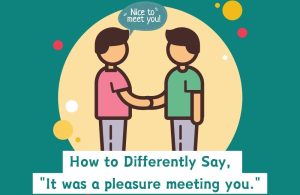In your daily life, both in the personal and professional arena, offering things to the people surrounding you is quite common. When you are in a family program or in an official event, offering things or help to others is a very polite gesture in English culture.
“Would you like to have something?” and “What would you like to have?” are common to offer something to someone. Modal verbs “Would” & “Can” as well as question words “Do,” “How,” “Who,” and “What” are commonly used in collocation with some other words to offer something to someone.
Are you looking for a book or a guide to help you learn and improve your English? You may try English Made Easy Volume One: A New ESL Approach: Learning English Through Pictures (Amazon Link).
Now, let’s learn the use of some phrases so that you can offer something to someone politely in an appropriate manner.
Chapters
- Different Expressions of Offering Something to Someone
- A Sample Conversation on Offering Something to Someone
- Takeaway Words
- In Conclusion
- 10 Frequently Asked Questions Related to Offering Something to Someone in English
Different Expressions of Offering Something to Someone
There are different expressions that you can use to offer something to someone. In this post, I will discuss a number of phrases that are used to offer anything. No matter whether you are in a formal, informal, or semi-formal context, you are expected to be polite.

#1 Would you like…?
This is the most common polite expression used to offer something to someone. In formal situations, “Would you like…?” is used. Let’s look at some examples.
| Structure: Would you like + noun/noun phrase/infinitive + extension? Examples: Would you like a cup of tea? Would you like to have a cup of tea? Would you like a trip to London with me? |
#2 Would you care for…?
“Would you care for…?” is a very polite expression used to offer something. As you already know, the modal “Would” is used in formal situations; this particular expression is also used in formal situations. In hotels and restaurants, “Would you care for…?” is commonly used to offer food.

The following table shows the structure and some examples.
| Structure: Would you care for + noun/noun phrase + extension? Examples: Would you care for some more curry? Would you care for a glass of juice? Would you care for pudding, sir? Would you care for a drink? |
#3 Can I get you…?
“Can I get you…?” is also commonly used to offer food or drink; however, you can use this to offer other things as well. You can use it in semi-formal settings. See some examples below.
| Structure: Can I get you + noun/noun phrase + extension? Examples: Can I get you a cup of coffee? Can I get you some milk? Can I get you something? Can I get you some food? |
#4 Do you want…?
“Do you want…?” is a very common informal expression that is used to offer something to someone. It sounds too direct; thus, you can only use it in informal situations.

The examples will show the use of “Do you want…?
| Structure: Do you want + noun/noun phrase + extension? Examples: Do you want some sugar? Do you want another glass of coke? Do you want dessert? Do you want some money? |
#5 Do you fancy…?
“Do you fancy…?” is not that common as an expression of offering something. Yet, traditionally, British people use it in informal situations more than any other English-speaking people. Let’s have some examples.
| Structure: Do you fancy + noun/noun phrase + extension? Examples: Do you fancy a cup of tea or coffee? Do you fancy a burger? Do you fancy fish or meat for lunch? Do you fancy latte or cappuccino? |
#6 Who would like…?
At a party or an event where a group of people is present, you can use “Who would like…?” to offer something to everyone at a time. This is a formal expression. You address all the people at a time, and whoever responds, you give it to them.

The example may help to clarify the idea.
| Structure: Who would like + noun phrase/infinitive + extension? Examples: Who would like a cup of green tea? Who would like to have something sweet? Would you like something to drink? Who would like to have this? |
#7 Who fancies…?
“Who fancies…?” is common in British English. When you need to offer something to a group of people at a time, you use it. This is used informally. See some examples.
| Structure: Who fancies + noun phrase/present participle + extension? Examples: Who fancies a cup of latte? Who fancies something spicy? Who fancies walking with me? Who fancies watching movies with me? |
#8 Who wants…?
“Who wants…?” is an informal expression, quite common when you need to offer something to a group of friends at a time. Let’s have some examples.
| Structure: Who wants + noun phrase/infinitive + extension? Examples: Who wants to go to the cinema tonight? Who wants something to drink? Who wants this chocolate, girls? Who wants the chocolate? |
#9 What can I get you…?
“What can I get you…?” is commonly used in informal contexts to offer something. See some examples.
| Structure: What can I get you + extension? Examples: What can I get you for dinner? What can I get you? (Offering generally) What can I get you to write? A pen or a pencil? What can I get you to eat? |
#10 What will you have…?
“What will you have…?” is a common expression used in informal contexts to offer something. It is usually used to offer food and drinks. However, it can also be used for offering other things. The examples may help you understand the use of this expression better.
| Structure: What will you have + extension? Examples: What will you have for dinner? What will you have? (Offering generally) What will you have? Fish or meat? What will you have? Rice or Noodles? |
#11 How about…?
“How about…?” is probably the most common informal expression used to offer something to friends or people you maintain a very close relationship with. See some examples.
| Structure: How about + noun/noun phrase/present participle + extension? Examples: How about desserts? How about a cup of green tea? How about singing a song together? How about a long drive? |
A Sample Conversation on Offering Something to Someone
Samaya: My shopping is done for today… thank God you were with me this whole time!
Terissa: I actually had fun helping you shop… it was enjoyable.
Samaya: True. But, hey, can I get you something… what about a nice top or trousers?
Terissa: Oh, no, don’t bother… I’m cool. Just check if you’re missing anything yourself.
Samaya: No, I’ve covered almost everything. Talk for yourself… would you fancy a pair of goggles? It may come in handy during daytime traveling.
Terissa: I got a new pair last week. So, no, thanks.
Samaya: Oh, come on… you’ve got to take something. I think we should get a nice perfume for you – what do you say?
Terissa: Mmmm… alright, if you’re insisting that much. But, I’ll buy us some snacks, deal?
Samaya: Ohoo! Sounds great.
Terissa: Alright then. Who wants some crispy chocolate ice cream?
Samaya: Yep, I do!
Takeaway Words
Goggles (noun) = protective and closely attached glasses for eyes that look like sunglasses
Crispy (adjective) = dry and munchy texture of food or other substance
Fancy (verb) = to develop a liking for something or someone
Insist (verb) = to keep requesting or asking about doing something
In Conclusion

No matter whether you make a request or ask for permission, or offer something to someone, politeness is the key. Regardless of context: formal, informal, or semi-formal, you are expected to be polite and cordial.
Using polite words and tone, positive body language, and facial expressions can reveal your politeness. To know more about the proper use of tone, gestures, and postures, you can read How to Use Voice Tone and Body Language.
If you still have any queries about the correct ways of offering something to someone, you can comment below; we’ll try to give you feedback.
Thanks for reading.
Happy learning.
10 Frequently Asked Questions Related to Offering Something to Someone in English
1. Why is it important to offer something in a polite manner in English?
Politeness ensures that the gesture is well-received and fosters positive interactions and relationships.
2. What are common phrases to use when offering something?
Phrases such as “Would you like…?”, “Can I get you…?”, or “How about trying…?” are courteous ways to offer something.
3. Should I insist if someone initially declines my offer?
While a gentle second offer can be seen as considerate, it’s essential not to press too much, respecting the individual’s choice.
4. How can I make my offer sound more genuine and heartfelt?
Using a warm tone, maintaining eye contact, and personalizing the offer (e.g., “I made this especially for you”) can make it sound more sincere.
5. Is it appropriate to offer something without a specific reason?
Absolutely! Spontaneous gestures of kindness can brighten someone’s day and strengthen bonds.
6. How should I react if my offer is continuously declined?
Respect their decision without taking it personally. Everyone has their reasons, and it might not reflect on the gesture itself.
7. What non-verbal cues can complement my offer?
A genuine smile, open body language, and nodding can make the offer appear more friendly and sincere.
8. Can cultural differences affect the way offers are made and received?
Yes. Different cultures have varying etiquettes and norms related to giving and receiving. It’s always good to be aware of cultural nuances.
9. Is it okay to offer something I received as a gift but don’t need?
If the item is unused and you believe someone else might appreciate it, it can be okay. However, ensure it’s presented in a way that doesn’t make the receiver feel like an afterthought.
10. Should I expect something in return when I offer something?
Offers should generally be made without the expectation of a return. The joy is in the act of giving and making someone else’s day brighter.






